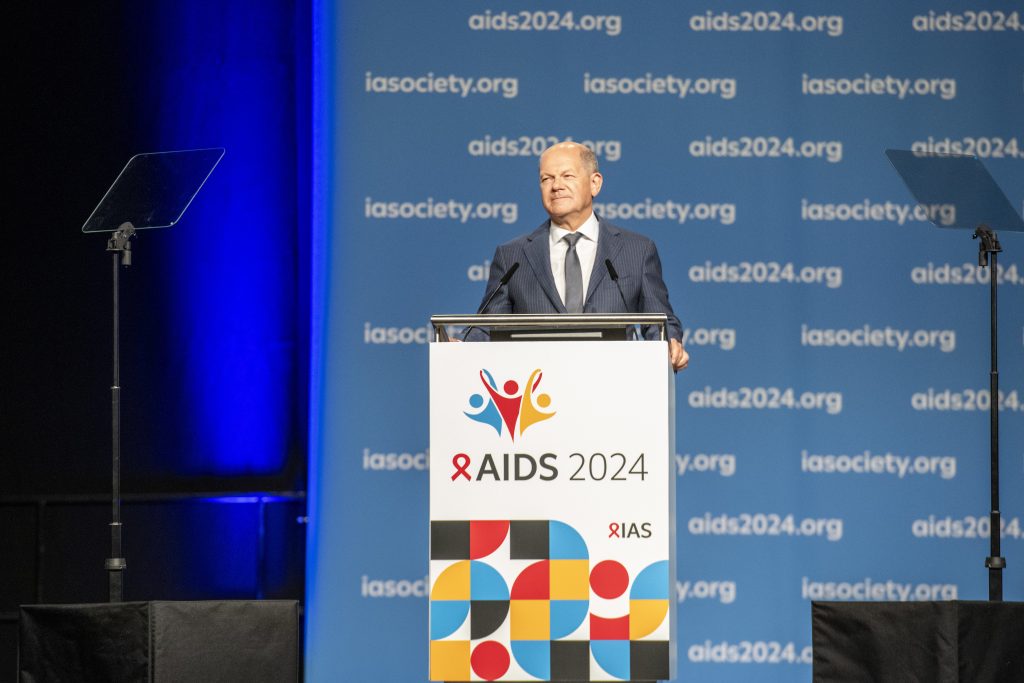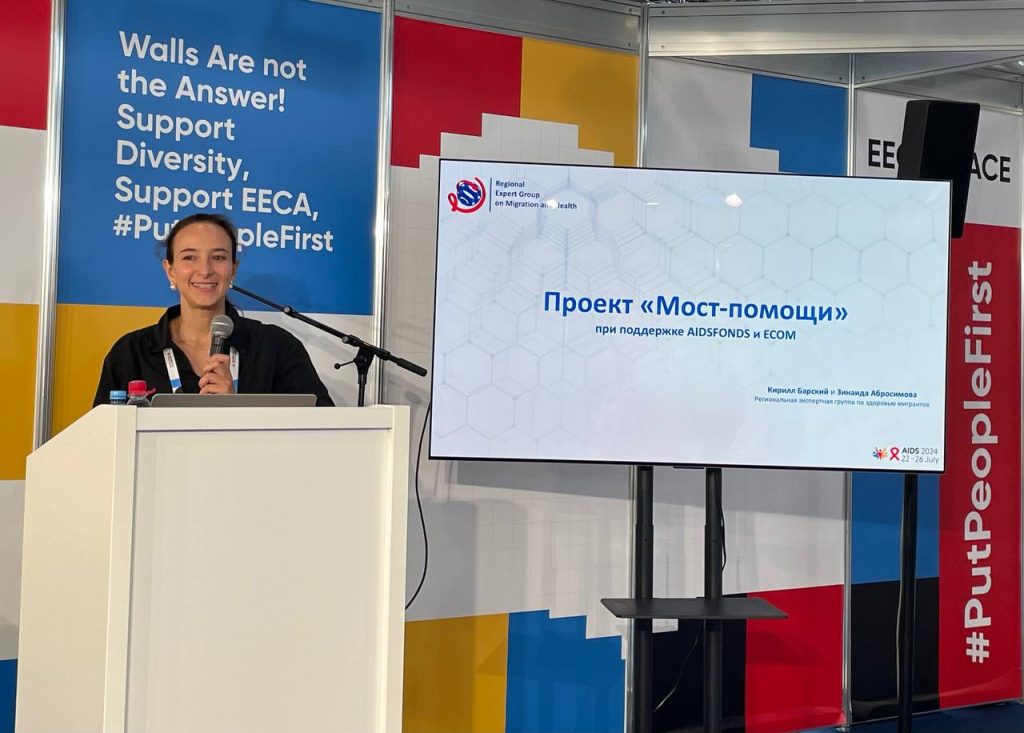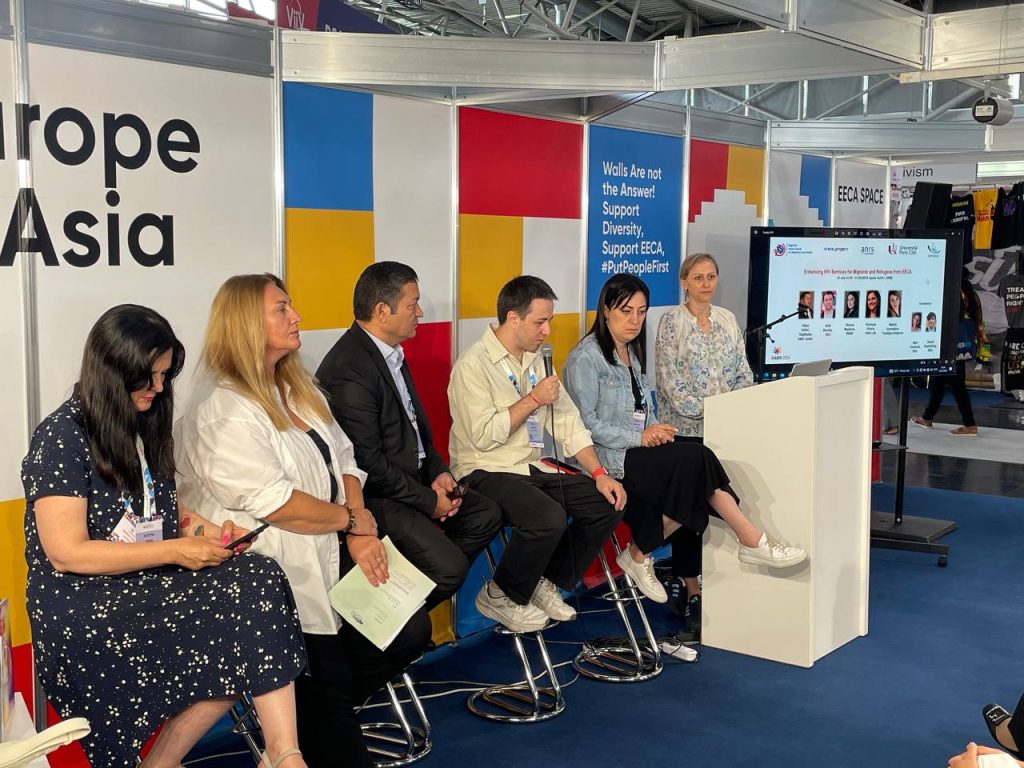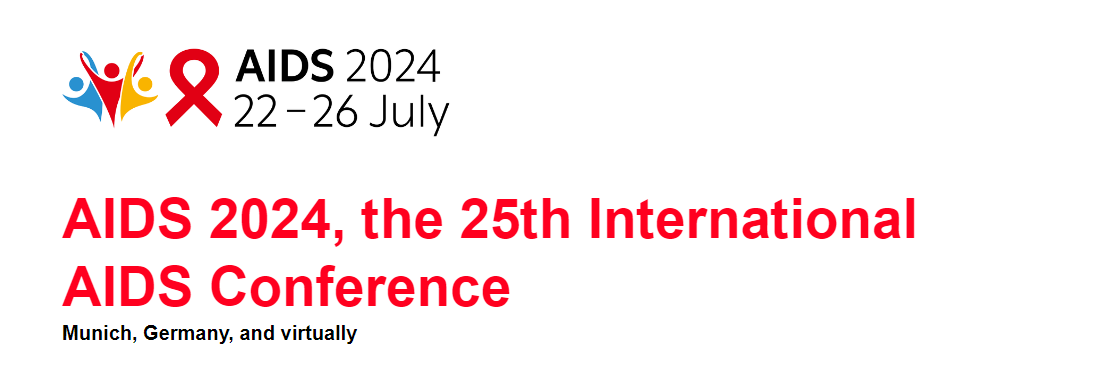The Regional Expert Group on Migration and Health (REG) took part in the 25th International AIDS Conference in Munich, Germany, on 22-26 July 2024. With the participation of the REG, several sessions and public discussions were organized on topics related to the health of migrants in different countries and access to health services, in particular, HIV services.

The first discussion on migrants and HIV in the context of the EECA region took place in 2018, at the 22nd International AIDS Conference in Amsterdam (Netherlands). Six years later, the topic of migration has become one of the key topics at the conference. At the opening ceremony, German Chancellor Olaf Scholz said, speaking about the importance of human dignity and supporting people in migration: “In our country, each and every individual must be protected — no matter where you come from, no matter how healthy you are, no matter who you love.” This approach was also reflected in the slogan of the conference – #PutPeopleFirst.
According to the International Organization for Migration, Europe is currently the largest destination for international migrants, with 87 million migrants (30.9% of all international migrants). Germany, which hosted the conference this year, became the world’s second largest destination country (after the United States) with almost 16 million international migrants.
The topic of migration also remains very important for the EECA countries: Russia, which hosts about 12 million international migrants, is among the top five destination countries. At the same time, in recent years, migration flows in the region have been rapidly changing both their composition and direction. In the Global Village space of the conference, the activists from the EECA region had their pavilion, where the slogan #PutPeopleFirst was interpreted as creating bridges between communities for the benefit of each of its members while the growing walls in the region.

The first event with the participation of REG representatives was the pre-conference session on HIV and mobility in the EATG network zone on July 21. The speakers included REG program coordinator Zinaida Abrosimova, REG coordinator, director of the Steps Foundation Kirill Barsky, and REG country representative Krystina Rivera, who spoke about barriers to access to HIV services for Ukrainians in Germany.
The next day, on July 22, at the session “Migrant Health: Results of Research on Access to Treatment for Ukrainian Migrants with HIV in Europe, Prospects, Recommendations,” presentations were made by REG academic relations coordinator Daniel Kashnitsky, demographer Vladimir Kozlov and REG country representative Krystina Rivera.

On July 23, REG held a public session “Enhancing HIV Services for Migrants and Refugees from EECA.” Zhenya Mayilyan (Real World Real People, Armenia), Dr. Alijon Soliev (Tajikistan AIDS Center), Kirill Barsky (Steps Foundation), Krystina Rivera (REG) and Natalia Tyunyagina (HelpnowHUB Foundation) presented their organizations’ experience in supporting people in migration. The session was moderated by Mari Chokheli and Daniel Kashnitsky. The key topic of the session was various aspects of cross-border assistance to migrants with HIV, existing opportunities and problems. The experts discussed the current situation and future prospects for remote registration and the difficulties faced by countries that were migration “donors” yesterday and have become host countries today.
Two posters prepared with the participation of REG were also presented at the conference. The poster “Strategic Cases and the Role of Non-Governmental Organizations (NGOs) in Supporting Migrants Living with HIV in the Russian Federation” was prepared based on the materials of the project “HIV services sensitive to the needs of migrants in the Russian Federation. 2022-2024”. Within the framework of this project, professional lawyers help migrants with HIV defend their rights and find the best solutions related to the legal aspects of their stay in Russia. The second poster presented at the conference was “Ukrainian Refugees in European Countries: Barriers, Solutions and Best Practices Access to HIV and Tuberculosis Care”. Having studied the experience of Ukrainian refugees in five countries – Poland, France, Germany, Lithuania, Moldova and Georgia – the researchers came to the conclusion that, despite the availability of treatment in all these countries, refugees face a number of problems, and suggested ways to solve them.
The International AIDS Conference, which takes place every two years in different countries around the world, is the largest international event on this topic. This year the conference brought together 15,000 scientists, doctors, social workers, activists and other specialists involved in solving the problem of HIV/AIDS on all continents.
